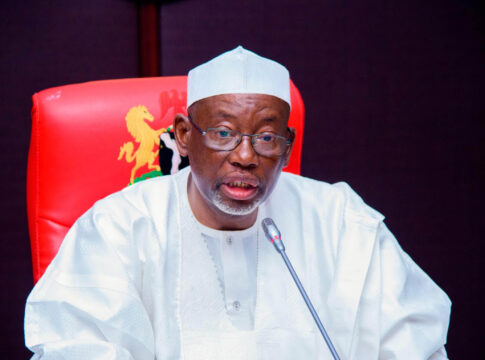In a time when public funds are scrutinized and pilgrimage logistics press for precision, Jigawa State has taken a decisive, forward-looking step that other states would do well to mirror.
By approving a N3.3 billion loan to the State Pilgrims Welfare Board to secure 400 Hajj seats from the National Hajj Commission of Nigeria (NAHCON) for the 2026 pilgrimage, Jigawa has demonstrated a rare blend of financial prudence, spiritual commitment, and administrative foresight.
This is not just about seats; it’s about safeguarding dignity, ensuring orderly operations, and placing the spiritual welfare of residents at the center of governance.
The Jigawa Executive Council’s approval of a 3.3 billion naira loan is explicitly aimed at obtaining allocated Hajj seats in a timely fashion. By pre-financing the seats, Jigawa preserves the state’s allotment and minimizes the risk of last-minute shortages or chaotic allocation, thereby delivering a smoother experience for intending pilgrims.
READ KaabNews e-copy: https://kaabanews.com/kaabanews-e-magazine-releases-october-2025/
The loan covers 400 seats, a significant cohort that translates into real opportunity for residents who have saved and planned for years. It signals a serious commitment to ensuring that the spiritual journey of Jigawa’s pilgrims go on without hitch.
Importantly, the plan includes a clear refund timeline: the Pilgrims Welfare Board is expected to fully refund the sum before the airlift commences. This demonstrates fiscal discipline and accountability, balancing faith with sound financial management.
For states grappling with NAHCON deadlines and the practicalities of securing seats, Jigawa’s approach offers a replicable blueprint:
Early, decisive action: Don’t wait for the deadline to loom; lock in seats when allocations are confirmed.
Public accountability: Tie financing to a transparent repayment plan that aligns with scheduled pilgrims’ airlift, ensuring funds are recouped in a timely manner.
It is an indication of a broader agenda-while flagging the Hajj seats-also includes social investments, such as funding for palliative shops across local government areas, reinforcing a governance model that attends to both spiritual needs and community welfare.
Jigawa’s decision is a practical expression of governing with a spiritual conscience. It recognizes that the pilgrimage is more than a ceremonial rite; it is a major communal undertaking requiring careful planning, reliable funding, and administrative coordination. In times of competing budgetary pressures, Jigawa has shown that it is possible to honor the sacred trust placed in government by investing wisely and transparently in the paths that lead residents to their holy journey.
It is important that when NAHCON allocations are confirmed, state government should act swiftly to secure seats through viable, accountable funding models that protect pilgrims’ interests and ensure orderly operations, instead of the jamboree spending that serve only the pecuniary interest of the profligate politicians.
State through their Pilgrims Welfare Boards should align budgetary planning with pilgrimage deadlines: The Hajj Saving Scheme is a veritable tool in this direction, yet to be fully tapped to guarantee seat allocations before payment deadlines, because it’s not only a hajj planning programme, it is a social investments.
So, Let us emulate the Jigawa’s example by channeling ancillary funds into pilgrims’ support infrastructure-ensuring a holistic approach to public service for those undertaking the pilgrimage.
The Jigawa model isn’t merely about money; it’s about governance with purpose: safeguarding sacred journeys, guaranteeing orderly logistics, and stewarding public resources with integrity.
If more states adopt this approach, NAHCON’s deadlines will become less a drumbeat of urgency and more a testament to efficient, faith-aligned administration. Let this be a moment where policy and piety converge to empower citizens, uplift communities, and honor a shared devotion.
READ: Kaaba News Magazine OCTOBER 2025 COMPLETE























